Have you ever gotten the feeling that the place where you are is a part of you somehow? It’s not what you would typically consider your home, and by most standards, it’s one of the furthest places from actually being home, yet, somehow you just feel like you’re meant to be there? It may sound overly romanticized or cheesy when put into words this way, but I’ve yet to find a better way to describe the feeling that washes over me every time I visit my Aita’s hometown.
Aita (Father in Basque) was born in Gorriti, Nafarroa, a small village in the Larraun Valley, and lived there until he came to the United States to herd sheep when he was 18 years old. Little Gorriti has all of the Basque village charm with green rolling hills, white baserriak (farm houses) with red roofs that are hundreds of years old, and more sheep, cows, donkeys and horses than people.
READ MORE from Mikaela:
Becoming an Euskaldun Berri
Why Euskararen Eguna (the day of the Basque language) is so Important
Music Helps Me to Adapt to Basque Country
It is a town so small that the lone restaurant, Berekoetxea Jatetxea, is the only business that can be found, and, while walking in the surrounding hills, you may come across Santa Barbara, a charming hermitage chapel that overlooks the whole town. But, even taking these things into account, the true charm of this town comes in the sense of community that you feel as you greet people through the streets. This town, in all definitions of the word, was Aita’s home for some of the most formative years of his life, and a few decades and a generation later, the feeling of home has been passed on to me.
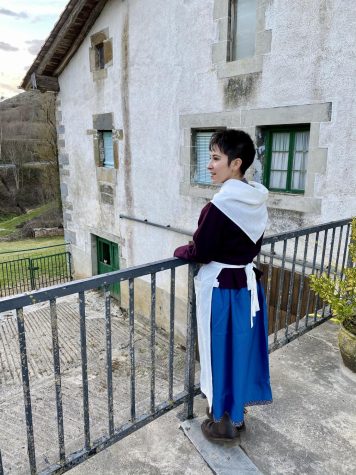
I had the great fortune of coming fairly regularly to the Basque Country as I was growing up to get to know Aita’s homeland. And all of our family, when we came, we always stayed in Gorriti. Some of my own earliest memories are from my first trip to Euskal Herria when I was four years old. So, maybe you could say that my feelings of home come from those trips and from the stories I’ve been told, but even that doesn’t seem to pinpoint the exact feeling I get when I walk through the streets of Gorriti.
I walk on the old roads and I can imagine the mischief that ensued when Aita and my izoak and osabak (aunts and uncles) were young. I stop in front of Etxeberria (which means “new house” in the Basque language), the now ironically named 500-plus- year-old house that Aita was born and raised in and can imagine the hopes and trials that my grandparents faced together in that home while raising 10 children during Franco’s dictatorship, arguably one of the most challenging periods of Basque history.
When I find myself in the surrounding hills, I remember Aita’s stories of walking over mountains alone at the age of five to get to the neighboring town to work on his uncle’s farm. So many of the stories that helped shape Aita into who he is come to life in my mind each time, and in this town it all feels so real and concrete. And much to my own surprise, despite living an ocean away for the majority of my life, when I’m there, it all feels like a part of me.
Since moving to the Basque Country eight months ago, I’ve made it a point to come to Gorriti for at least one weekend out of each month. I’ve adjusted fairly well to my new life here in Euskal Herria, but every time I go to Gorriti, everything somehow just feels more natural to me. A new, yet paradoxically, familiar side of me opens up. Maybe it’s the tranquility and quiet of the tiny little town, or maybe it’s just that this little town is one of my true homes. That may be a question I can never fully answer, but I’m grateful for the opportunities that allow me to explore it.
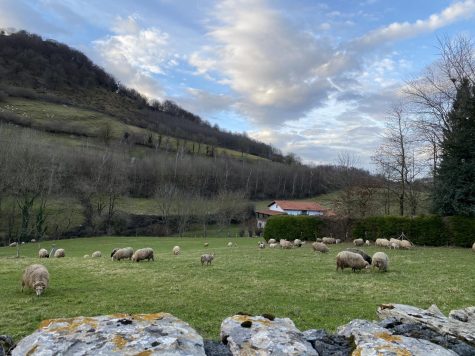
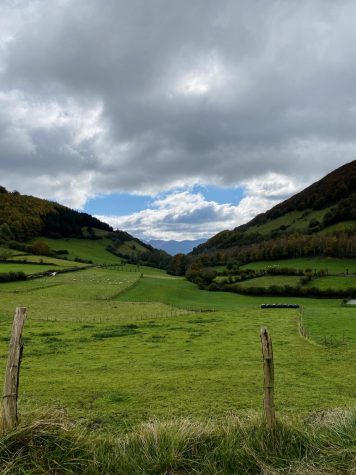
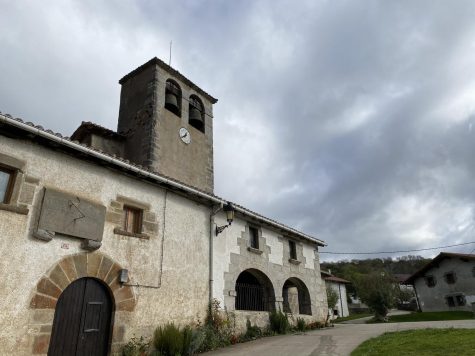

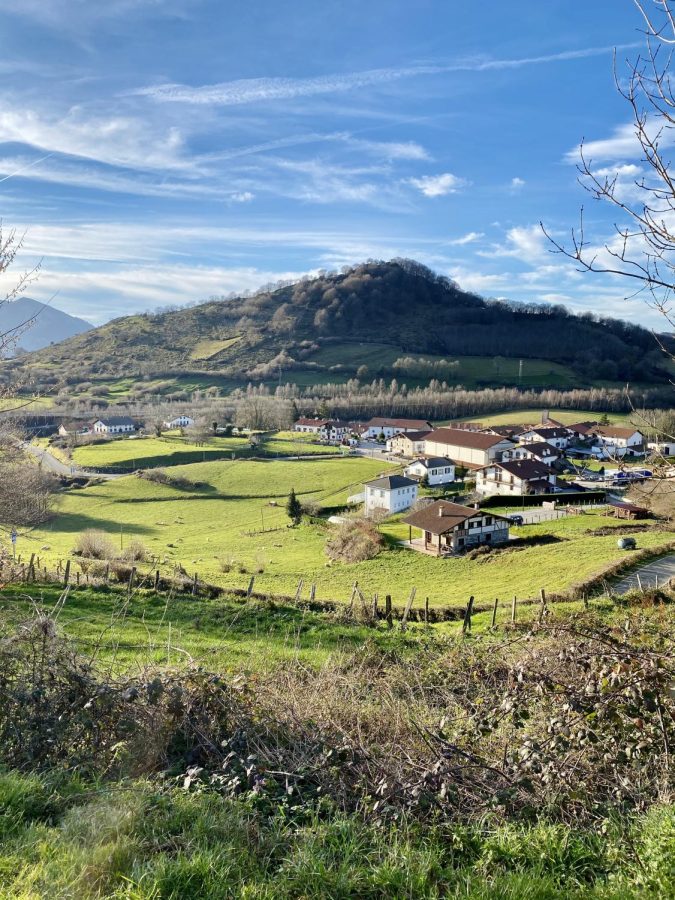
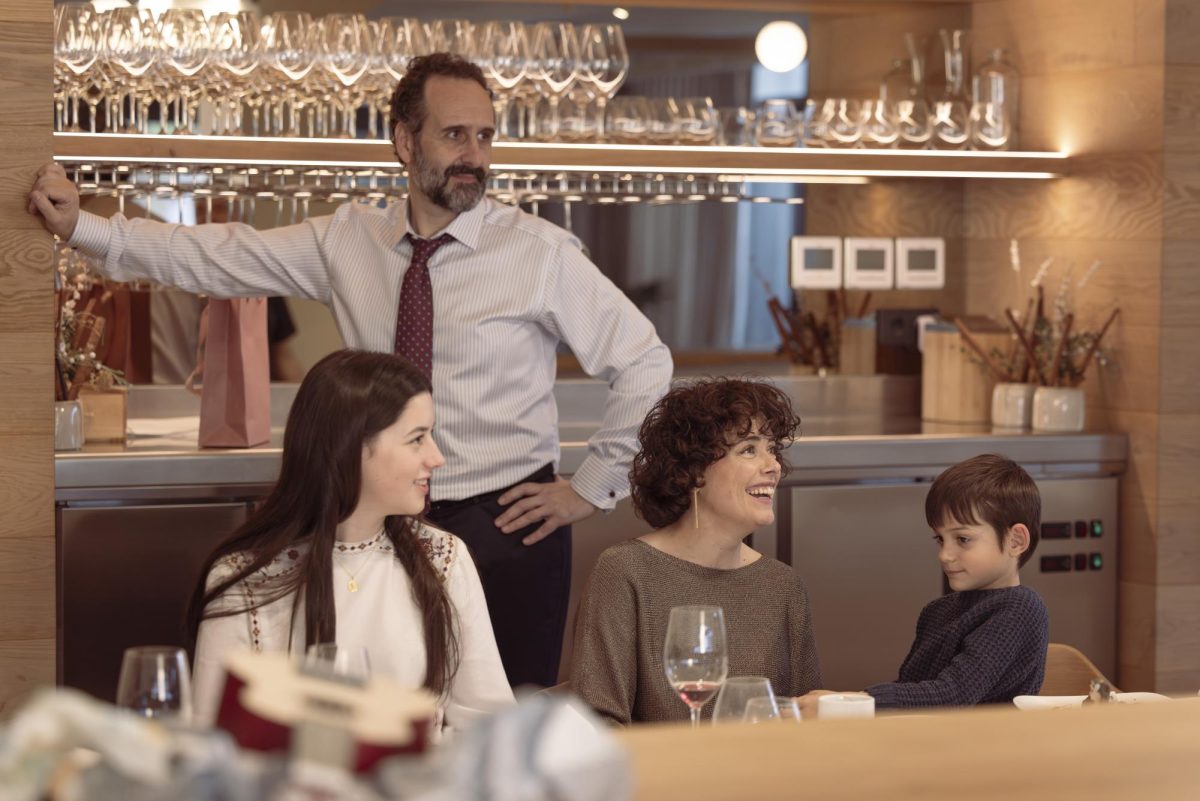
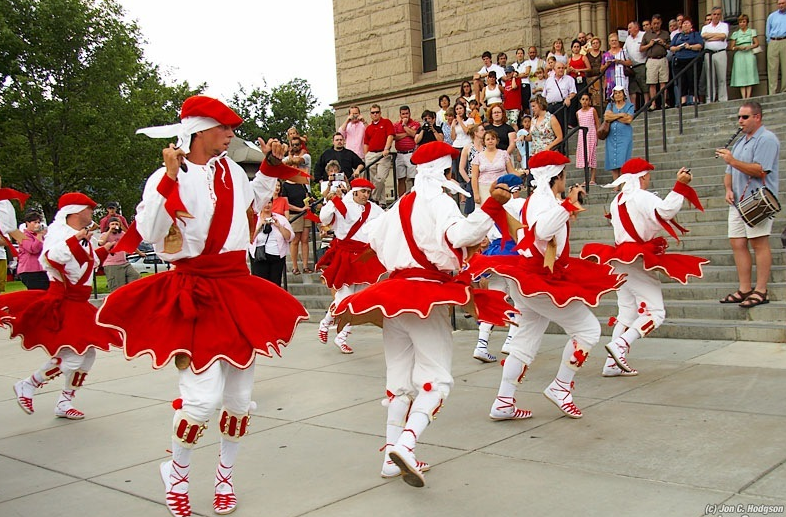
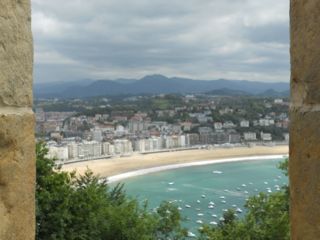


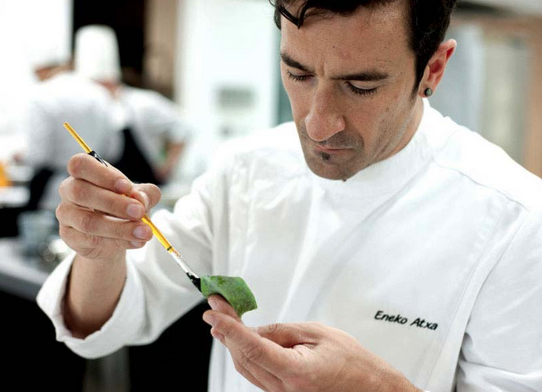
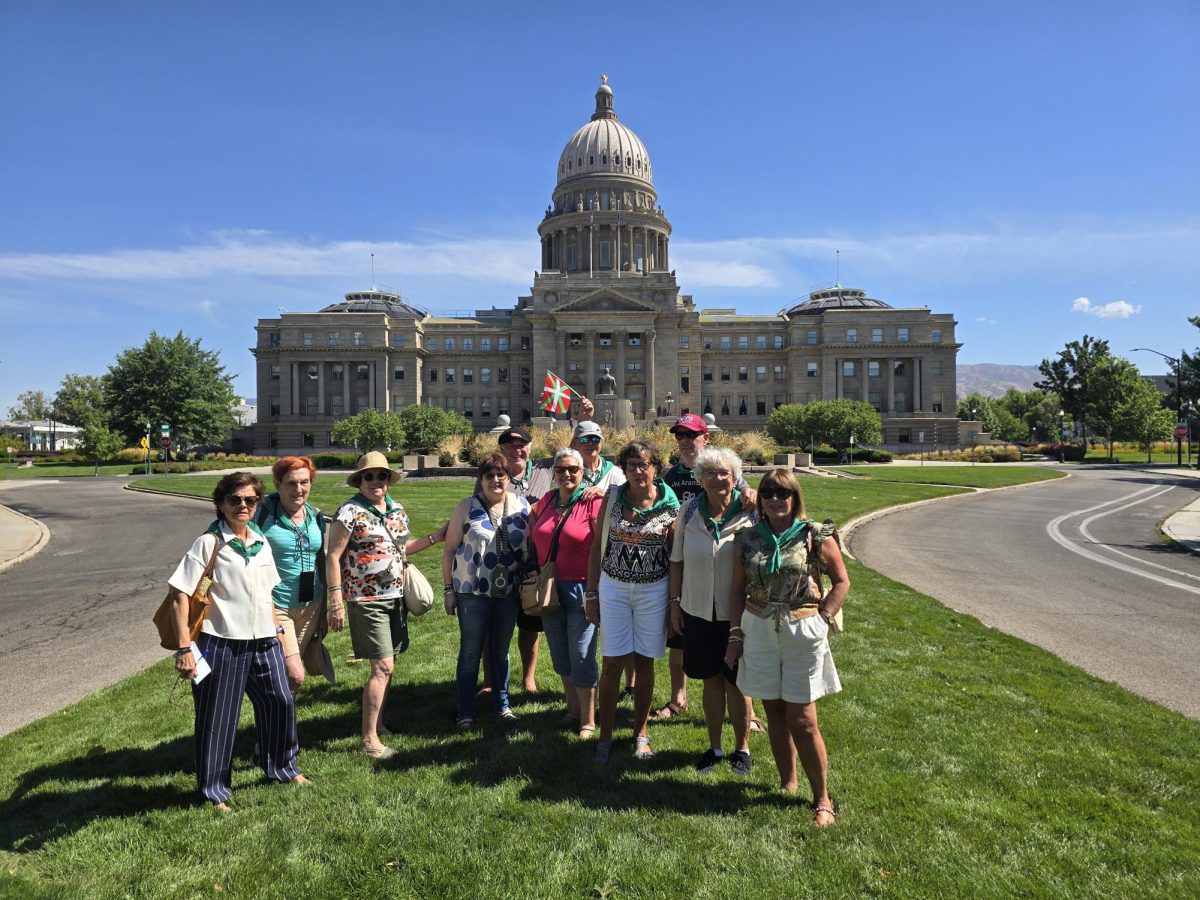
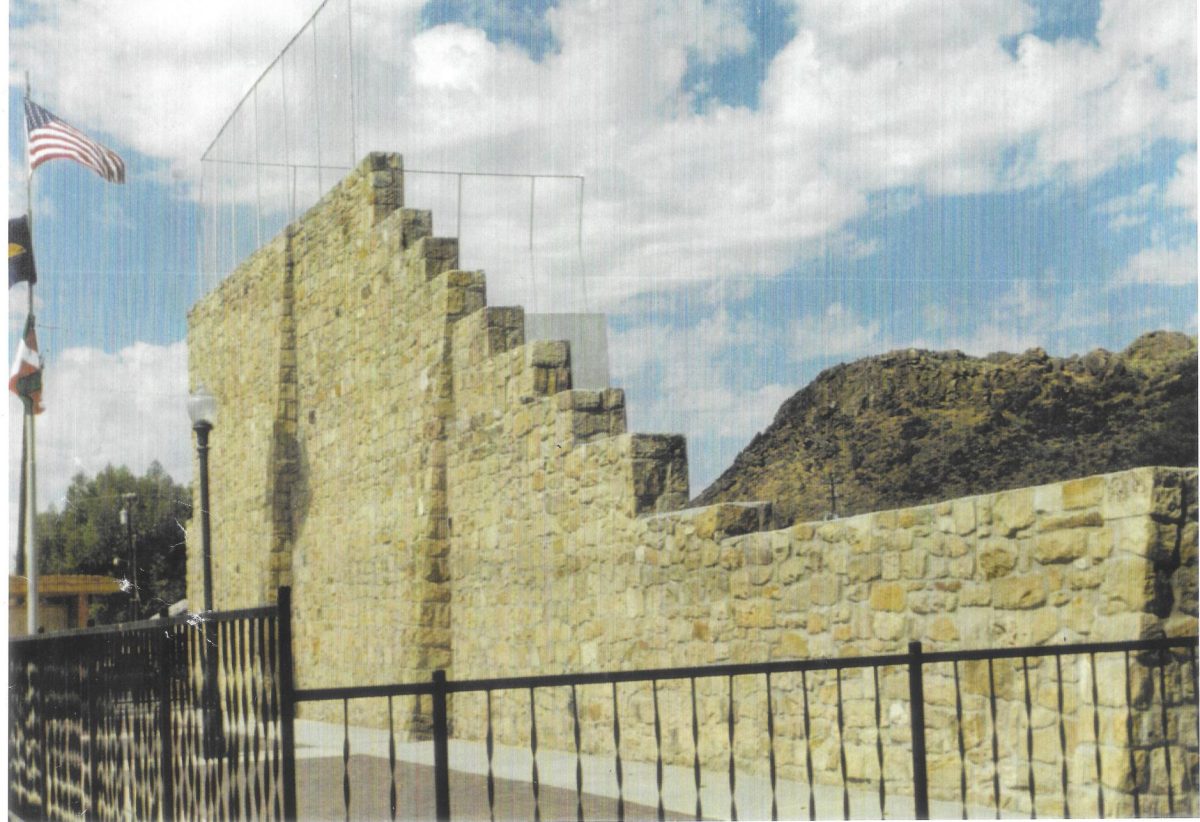
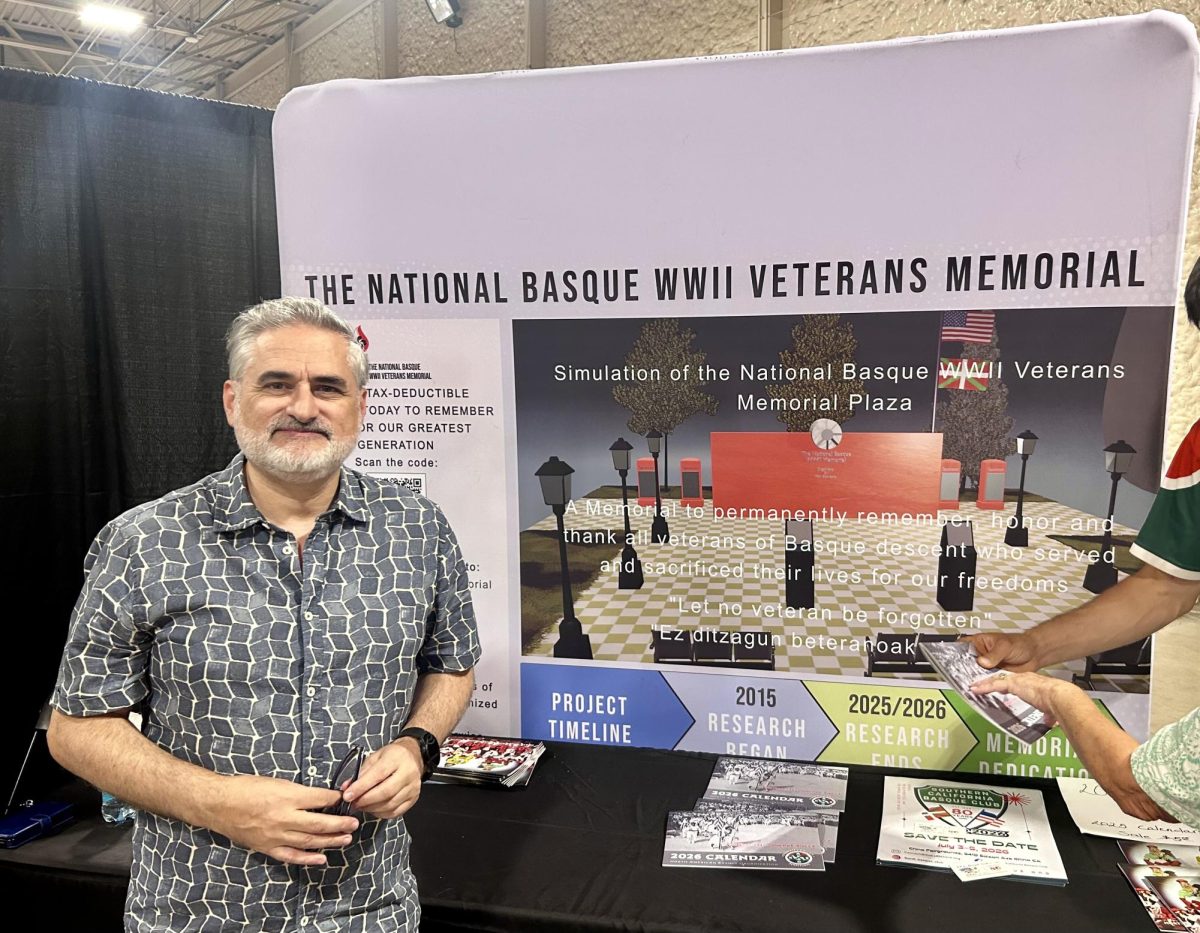
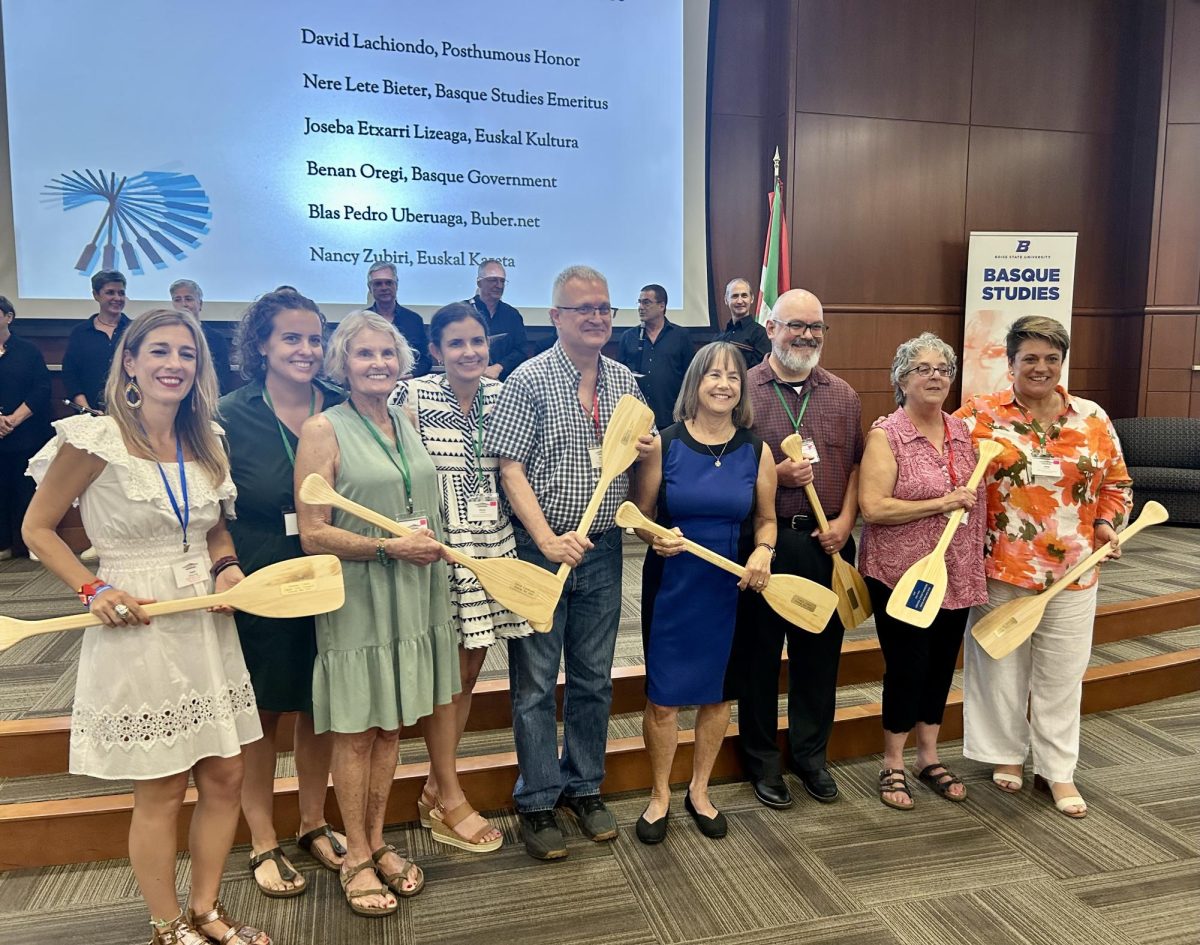
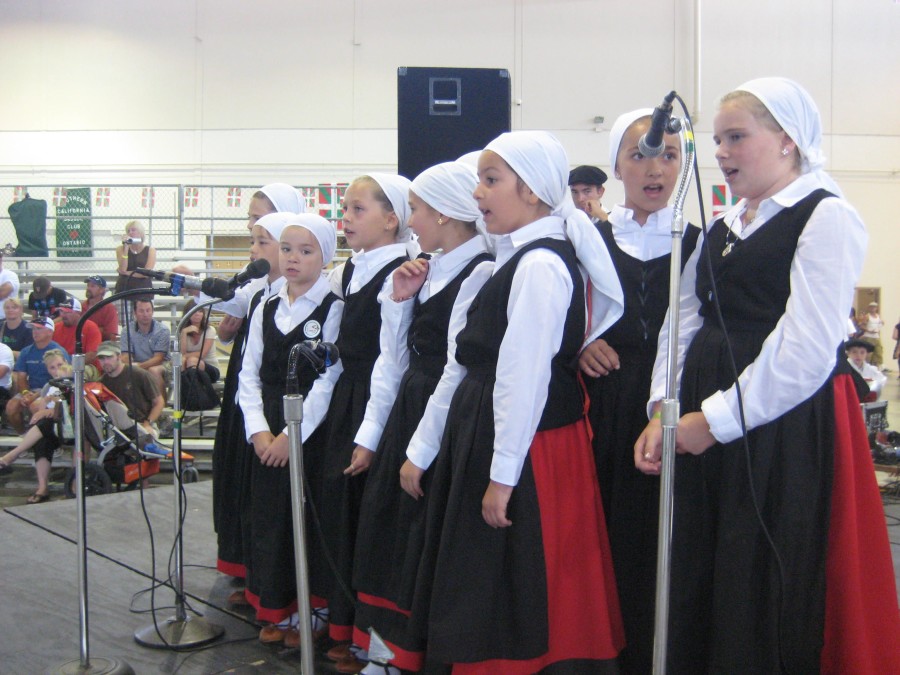
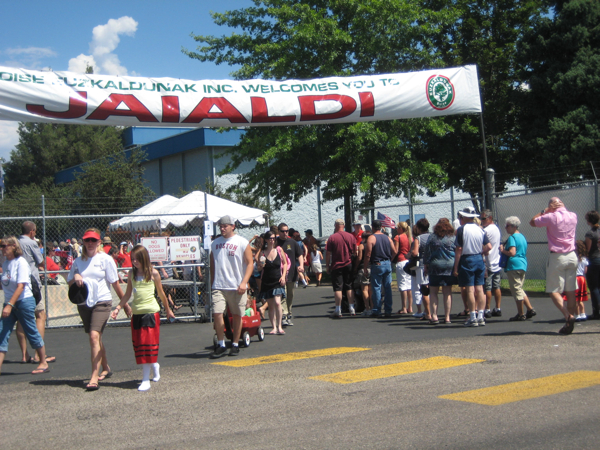
Nadeen • May 26, 2022 at 9:50 am
Lovely piece. And even though we did not come as children to Nafarroa to visit my grandparents’ birthplaces, I have done so as an adult, so I connect to that sense of home you write of when I am there. Eskerrik asko.